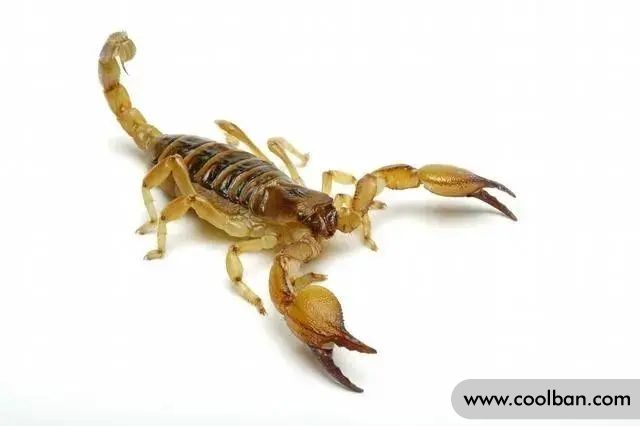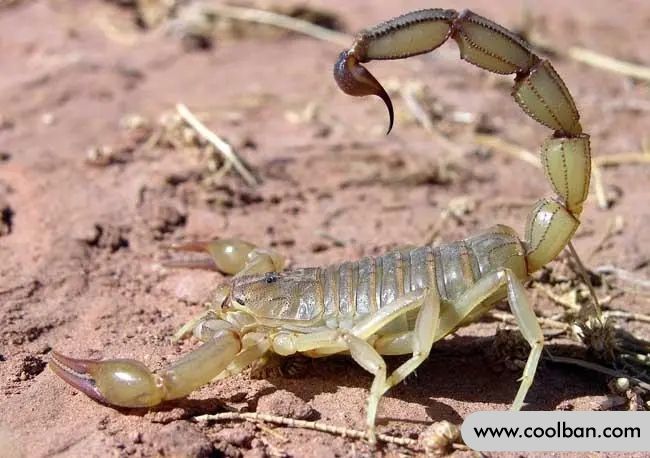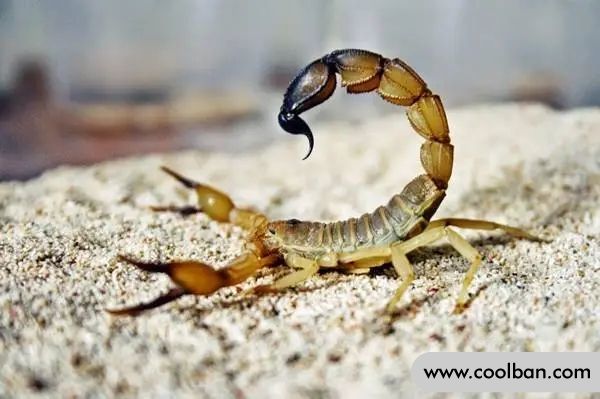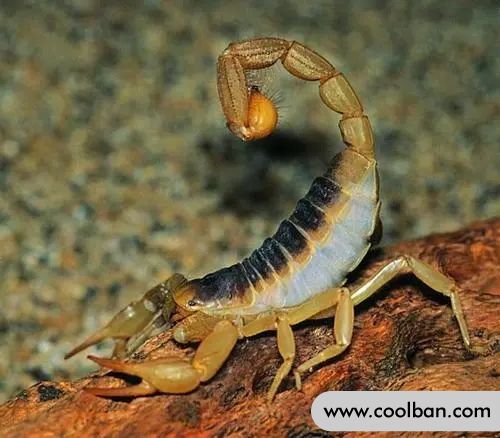How to Raise Scorpions
The ideal body length of an adult scorpion is about 55mm, and the lifespan of a scorpion is between 5-8 years. The body of the scorpion is very clearly segmented, and the body is covered with a highly chitinous shell.
It is composed of cephalothorax and abdomen, the body is yellowish brown, the ventral surface and appendages are lighter, and the fifth segment of the hind abdomen is darker. Scorpions are dimorphic, with slightly different shapes. The cephalothorax, composed of six sections, is trapezoidal, with a cephalothorax on the back, densely covered with granular protrusions, a pair of middle eyes in the center of the back, 3 lateral eyes on each side of the front end, and 6 pairs of appendages. The second pair are orthopedic limbs that aid in feeding, the second pair are crab-claw-like long, thick horns responsible for predation, touch and defense functions, and the remaining four pairs are walking feet. The mouth is located at the bottom of the anterior abdominal cavity.
The anterior abdomen is wider and consists of 7 segments. The posterior abdomen is a flexible and narrow section consisting of 5 somites and a caudal spine. The first part has genitalia and covers the genital opening. Female scorpions can give birth to young scorpions from the genital hole, and male scorpions can produce sperm rods from the genital hole, which intersect with the genital hole of female scorpions.

Breeding environment of scorpions
Scorpions are warm-blooded and cannot regulate their body temperature. Therefore, when raising scorpions at home, the temperature and humidity of the rearing environment are very important for their growth and reproduction.
Scorpions lack the ability to self-regulate their body temperature, which varies with the temperature of their surroundings. The growth and development of scorpions are directly controlled by the ambient temperature. The mating, reproduction, hibernation and feeding of scorpions should be carried out under suitable breeding environment and temperature.
When the temperature of the rearing environment drops below 10 degrees Celsius, the scorpions lose their ability to move. Scorpions will stop eating and exercising and gradually begin to go into hibernation. The most suitable temperature range for scorpions during hibernation is 0-7 degrees Celsius. If the temperature of the scorpion hibernation environment fluctuates greatly, the scorpion will fall into a state of restlessness, which will inevitably affect its normal dormancy and lead to the death of the scorpion.

The most suitable breeding environment temperature for scorpion growth and development is between 20-39 degrees Celsius. When the temperature of the rearing environment is 28-38 degrees Celsius, the scorpions are most active, grow the fastest, and have the most vigorous vitality. Most of their mating and spawning are also carried out in this temperature range; the absorption and transformation period of newborn scorpions and the postpartum rest period of female scorpions are the shortest when the ambient temperature is 32-38 degrees Celsius. If it is lower than 25℃, the absorption and transformation period and postpartum rest period will be prolonged accordingly, which may sometimes lead to the death of mother and child.
Generally, when the temperature of the breeding environment is between 40-42 degrees Celsius, a large amount of water in the scorpion body will evaporate. If the scorpion is not replenished with water in time, the scorpion will die of water. When the ambient temperature exceeds 43 degrees Celsius, the scorpion becomes paralyzed and dies shortly after.

Feeding knowledge of scorpions
Scorpions like wet and afraid of wet, like dark and afraid of light. Male scorpions can only mate twice in their lifetime. But female scorpions mate once and can give birth for 4 years in a row, which is a big reproductive advantage.
The lifespan of a scorpion is 5 to 8 years. Scorpions are ovoviviparous, and the fertilized egg completes embryonic development in the mother. Calving temperatures are between 30 and 38°C.
Scorpions are nocturnal animals. Likes wet and afraid of moisture, likes darkness and is afraid of strong light stimulation. They like to live in groups, are quiet, and have the habit of recognizing nests and groups. Most scorpions settle together in fixed dens. Generally in a large group of scorpion nests, large and small, male and female, live in harmony with each other. But if it is not the same nest of scorpions, they will often kill each other after encountering them.
Scorpions have the habit of hibernating, usually in the middle and late April, that is, they will come out of the sting after being stung, and will slowly enter the hibernation state in early November. The activity period is about 6 months a year. During the day, most of the scorpions leave the nest at 8:00-11:00 after sunset, and return to the nest at 2-3:00 in the next morning. This pattern of activity usually occurs on warm, windless, dry nights and rarely on windy days.

Scorpions like darkness and are afraid of light, especially the stimulation of strong light, but they also need a certain amount of light to absorb the heat of the sun in order to promote digestion, speed up growth and development, and promote the reproductive process. It has been observed that scorpions have a positive trend towards low light and a negative trend towards bright light, but they prefer a weaker green light.
Scorpions have a strong avoidance force against all kinds of strong odors, such as paint, gasoline, kerosene, asphalt, and various chemicals, pesticides, fertilizers, quicklime, etc. It can be seen that their sense of smell is very sensitive, and the stimulation of these substances is very detrimental to scorpions. Yes, even fatal. Scorpions are also very sensitive to a variety of strong vibrations and sounds, sometimes even scaring them away from eating, mating, and giving birth.
